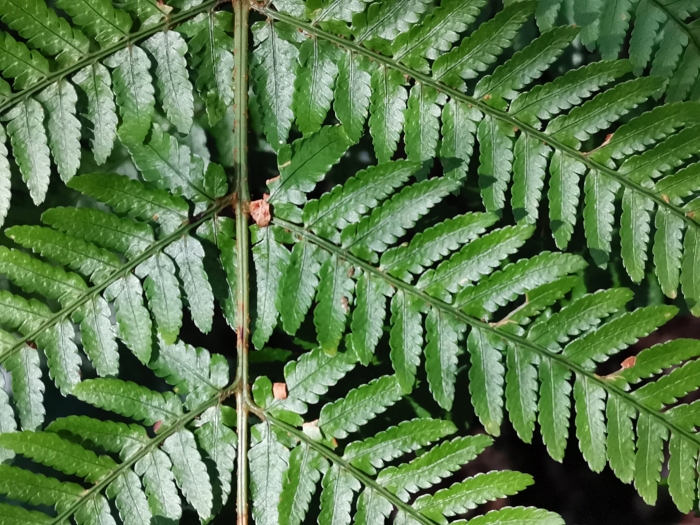Japanese Shield Fern
(Dryopteris erythrosora)
Japanese Shield Fern (Dryopteris erythrosora)
/
/

© harum.koh
CC BY-SA 4.0
Image By:
© harum.koh
Recorded By:
Copyright:
CC BY-SA 4.0
Copyright Notice:
Photo by: © harum.koh | License Type: CC BY-SA 4.0 | License URL: http://creativecommons.org/licenses/by-sa/4.0/ | Uploader: harumkoh | Publisher: iNaturalist |







































































Estimated Native Range
Summary
Dryopteris erythrosora, commonly known as Japanese Shield Fern, is an evergreen or semi-deciduous fern, native to forest understories and shaded mountain slopes in East Asia, including Japan, China, and Korea. It exhibits a semi-evergreen habit in cooler climates, with bipinnate fronds that are 30–70 cm (12–28 in) tall and 15–35 cm (6–14 in) broad, with 8–20 pairs of pinnae. The fronds are noted for their coppery tint when young, maturing to a rich dark green. The rhizome is upright to down-lying, thick, and branched, forming several crowns. The leaves are funnel-shaped, leathery, shiny, twice-divided, triangular, and pointed, with narrow lanceolate leaflets. The leaf stalks are striated, yellow to red, and bear linear to lancet-shaped brown scales.
Japanese Shield Fern is valued for its striking foliage that transitions from coppery red to dark green, providing year-round interest in the garden. It is used as an ornamental plant in shaded garden areas, woodland gardens, and as a ground cover. It is hardy in zones 5 to 11 and can tolerate drier soils than many ferns, though it thrives in moist, humus-rich soil with a pH range of 6.1 to 7.5. It prefers part shade or full shade and requires medium water and drainage. Cultivars like ’Prolifica’ and ’Viridosora’ offer gardeners additional variety. Propagation is typically by division or spores. Despite its ornamental appeal, Dryopteris erythrosora can be invasive outside its native range; gardeners should check local guidelines before planting.CC BY-SA 4.0
Japanese Shield Fern is valued for its striking foliage that transitions from coppery red to dark green, providing year-round interest in the garden. It is used as an ornamental plant in shaded garden areas, woodland gardens, and as a ground cover. It is hardy in zones 5 to 11 and can tolerate drier soils than many ferns, though it thrives in moist, humus-rich soil with a pH range of 6.1 to 7.5. It prefers part shade or full shade and requires medium water and drainage. Cultivars like ’Prolifica’ and ’Viridosora’ offer gardeners additional variety. Propagation is typically by division or spores. Despite its ornamental appeal, Dryopteris erythrosora can be invasive outside its native range; gardeners should check local guidelines before planting.CC BY-SA 4.0
Plant Description
- Plant Type: Fern
- Height: 1.5-2.5 feet
- Width: 1.5-2.5 feet
- Growth Rate: Moderate
- Flower Color: N/A
- Flowering Season: Non-Flowering
- Leaf Retention: Evergreen, Semi-Deciduous
Growth Requirements
- Sun: Part Shade, Full Shade
- Water: Medium
- Drainage: Medium
Common Uses
Border Plant, Deer Resistant, Groundcover, Low Maintenance, Potted Plant, Rabbit Resistant, Rock Garden, Street Planting
Natural Habitat
Forest understories and shaded mountain slopes in East Asia
Other Names
Common Names: Autumn Fern, Roze Stekelvaren, 홍지네고사리, Beni-Shida
Scientific Names: , Dryopteris erythrosora, Dryopteris nipponensis, Dryopteris erythrosora var. dilatata, Dryopteris erythrosora f. viridisora, Dryopteris cystolepidota, Dryopteris erythrosora var. viridisora, Dryopteris remotipinnula, Dryopteris sinoerythrosora, Dryopteris taquetii
GBIF Accepted Name: Dryopteris erythrosora (D.C.Eaton) Kuntze